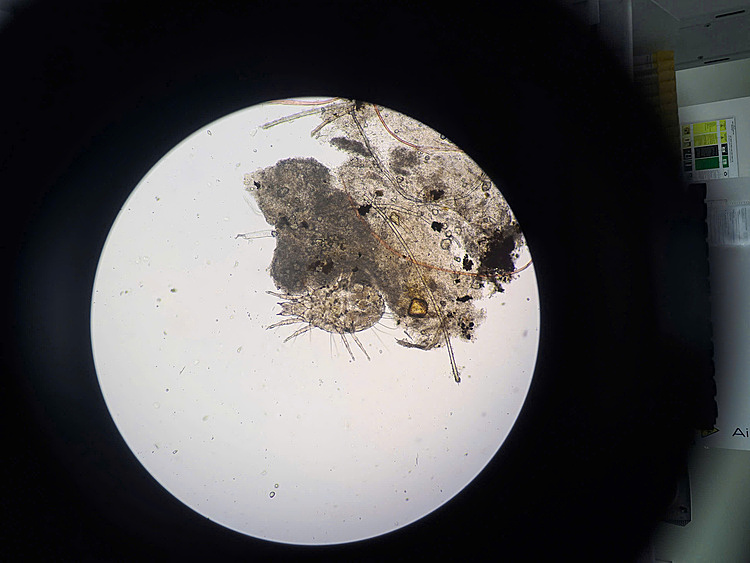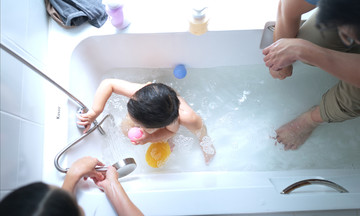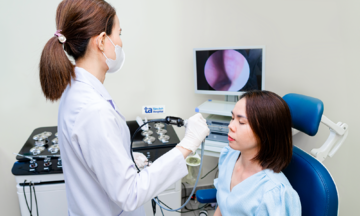On 10/9, the National Hospital of Tropical Diseases reported on a 68-year-old woman who had experienced persistent itchy eyelids for three years. The itching intensified at night, accompanied by a gritty sensation, discharge, and decreased vision, causing insomnia and significantly impacting her daily life. Despite seeking medical attention at various clinics, her symptoms persisted. The patient mentioned that she had splashed water in her eyes while bathing her dog and feared she might have contracted a parasite from her pet.
Dr. Nguyen Thi Lanh, an ophthalmologist, observed inflammation on both eyelids, cataracts in both eyes, and a chalazion in her right eye. She diagnosed the patient with chronic blepharitis, a common condition that can easily recur if not treated thoroughly.
To determine the underlying cause, the doctor ordered parasite tests, including those commonly found in dogs and cats such as dog tapeworm and roundworm. She also took samples from the eyelids for microscopic examination. The results revealed dozens of eyelash lice, tiny parasites measuring about 1-2 mm, densely inhabiting the base of the eyelashes. These lice are difficult to detect with the naked eye and are only visible in large numbers or under a microscope.
The patient was instructed on proper eyelid hygiene, including the use of specialized eyelid wipes and medicated eye ointment to reduce irritation, along with oral medication to treat the parasites. She was also advised to thoroughly clean her living environment, including bedding and furniture, where lice eggs could survive and cause reinfestation.
 |
Microscopic image of the louse found in the eyelid. Photo: Hospital provided |
Besides the eyelashes, these lice can also infest other hairy areas of the body, such as the scalp, pubic hair, and eyebrows. Transmission primarily occurs through close person-to-person contact or indirectly through shared personal items like towels, clothing, or bed linens. While not as easily transmitted as head lice, precautions are necessary, especially in shared living spaces with poor hygiene.
Dr. Lanh recommends that anyone experiencing persistent eye itching, increased discharge, a gritty sensation, eyelid redness, recurrent inflammation, or a history of contact with dogs, cats, or other pets seek medical attention for prompt diagnosis and treatment. Maintaining hand hygiene before touching the eyes, avoiding sharing personal items, and regularly cleaning bedding and the living environment are crucial preventative measures. While not life-threatening, prolonged infestation can reduce quality of life, potentially damage the eyelids, and affect vision.
Thuy Quynh












